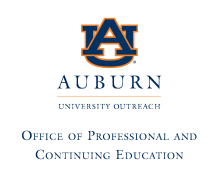
- Description
- Objectives
- Outline
- Materials
- System Requirements
- Watch a Demo
In this fast paced world of technology, it is important to be computer literate. Computer Basics gives students a better understanding of computers and many fascinating components of the digital world. This course introduces learners to basic hardware, such as traditional desktops, tablets and mobile applications. We will take a look at different types of browsers, tools that can enhance productivity, data storage options and proper internet searching techniques. This course will provide students with a solid framework of knowledge to enhance digital literacy skills, as well as ways to stay current with changes in technology.
Prerequisite(s): None
After completing this course, you should be able to:
- Define the basics of digital literacy and the history of computing in society
- Identify the central components of computers and how they function
- Recall the inner workings of different operating systems
- Differentiate between various uses of the internet and software for searching, productivity and networking
- Identify the role of emerging computer technologies in the way of safeguarding information and cloud computing
Computer Basics: Digital Literacy Module 1
Introduction to the Digital Literacy Journey
- Digital Literacy
- Computer Literacy
- Computers in Society
- Computers and Information
- Digitizing Information
- Where Are Computers Used?
- Computer Threats
- Viruses, Worms, and Trojan Horses
- Social Impact of Computing
- Communication
- Collaboration
- Ethics
Computer Basics: Digital Literacy Module 2
The Hardware Revolution
- History of Computing
- Inventing the Processor
- Main Computer Box
- Processors
- Memory
- Storage
- Binary
- Parallel Processing
- Computer Peripherals
- Mobile Computing
Computer Basics: Digital Literacy Module 3
The Software Revolution
- What is Programming Language?
- Basics of Programming
- BASIC
- Looping in BASIC
- Systems Software – The Operating System
- Early Operating Systems
- Windows
- Mac OS and Linux
- Utilities and Drivers
- Open Source
Computer Basics: Digital Literacy Module 4
Productivity Applications
- Word Processing
- Presentation Software
- History of PowerPoint
- What Can You Do With PowerPoint?
- Spreadsheets
- How Does a Spreadsheet Work?
- Who Uses a Spreadsheet?
- Databases
- Multimedia Applications
- Mobile Applications
Computer Basics: Digital Literacy Module 5
The Web of Knowledge
- Internet Basics
- Networks
- Basic Network Terminology
- Networking Terms
- Wireless Networks
- The First Browsers
- How to Build a Web Page
- Accessibility
- Usability
- Privacy
Computer Basics: Digital Literacy Module 6
The Search is ON
- What is Information?
- History of Searching
- Taxonomies
- Metadata
- Boolean Searching
- Information Searching on the Internet
- Bing
- Metasearch
- Searching on the Go
Computer Basics: Digital Literacy Module 7
Web 2.0
- What is Web 2.0?
- Blogging
- Tweeting
- Social and Business Networking
- Wikis
- Images
- Social Bookmarking
- The Future: Web 3.0
- Dark Side of Social Networking
Computer Basics: Digital Literacy Module 8
The Digital Society
- Privacy
- Piracy
- Cyber Crimes
- Making Money Online
- E-commerce
- Virtual Communities
- Online Education
- Computing Information
- The Law
- Globalization
Computer Basics: Digital Literacy Module 9
Emerging Computer Technologies
- Mobile Phones
- What is a Tablet Computer?
- History of the Tablet Computer
- Touch Screens
- Artificial Intelligence
- The Turing Test
- Cloud Computing
- Advantages of a Cloud
- Disadvantages of a Cloud
- Cloud Storage Systems
**Outlines are subject to change, as courses and materials are updated.**
Ed4Career is committed to being both environmentally conscious and making it easier for you to study! We’re making your education mobile! All of our textbooks are now provided as eTextbooks. You can access them on your laptop, tablet, or mobile device and can study anytime, anywhere.
The move away from physical books to eTextbooks means you get the latest, most up-to-date version available. This also makes your training more accessible, so you can study anywhere you have your phone or tablet. The best part is that all materials are included in your training cost so there are NO extra fees for books!
Internet Connection
- Broadband or High-Speed - DSL, Cable, and Wireless Connections
*Dial-Up internet connections will result in a diminished online experience. Classroom pages may load slowly and viewing large audio and video files may not be possible.
Hardware Requirements
- Processor - 2GHz Processor or Higher
- Memory - 1 GB RAM Minimum Recommended
PC Software Requirements
- Operating Systems - Windows 7 or higher
- Microsoft Office 2013 or higher. Also, you could use a general Word Processing application to save and open Microsoft Office formats (.doc, .docx, .xls, .xlsx, .ppt, .pptx)
- Internet Browsers - Google Chrome is highly recommended
- Cookies MUST be enabled
- Pop-ups MUST be allowed (Pop-up Blocker disabled)
- The Kindle Reader App or VitalSource Bookshelf App are needed for many of our courses (No special equipment needed. This can be downloaded for FREE onto your computer.)
- PowerPoint Viewer (if you do not have PowerPoint)
- Adobe PDF Reader
- QuickTime, Windows Media Player &/or Real Player
MAC Software Requirements
- Operating Systems - Mac OS x 10 or higher with Windows
- Mac office programs or a Word Processing application to save and open Microsoft Office formats (.doc, .docx, .xls, .xlsx, .ppt, .pptx)
- Internet Browsers- Google Chrome is highly recommended
- Cookies MUST be enabled
- Pop-ups MUST be allowed (Pop-up Blocker disabled)
- The Kindle Reader App or VitalSource Bookshelf App are needed for many of our courses (No special equipment needed. This can be downloaded for FREE onto your computer.)
- PowerPoint Viewer (if you do not have PowerPoint)
- Adobe PDF Reader
- Apple QuickTime Media Player
